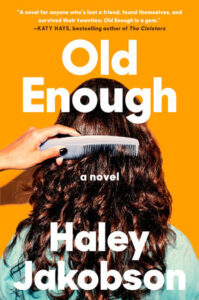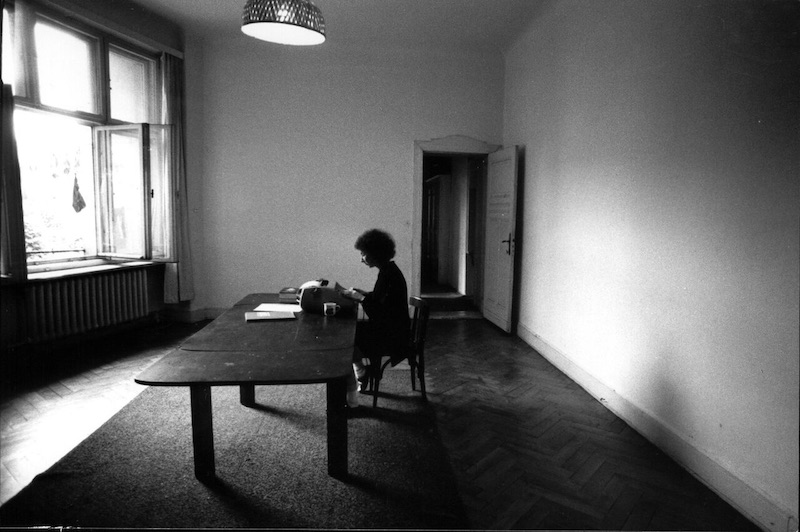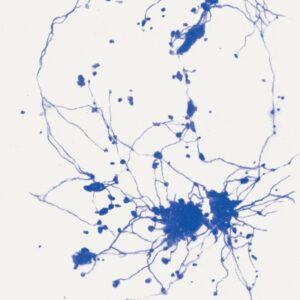Writers Don’t Need to Suffer To Make Art
Haley Jakobson: “Being a tormented artist is v. cringe.”
My students tell me, I write better when I’m sad, and I call bullshit. People say, If I work it out in therapy what would I write about? They go on a feral all-night bender and say, I’m doing it for the memoir. They say, Medication will make me numb, I don’t want to lose my sparkle.’
The tortured artist. The brooding soul. The insomnia-ridden creative inhaling carcinogens till the last word is penned on their bloody piece of paper. I used to think these archetypes made a real writer.
Martyrdom isn’t hot. Romanticizing pain is cheap. Equating suffering to inspiration is lazy. Is it easier to vomit words on the page when you’re heave-crying post breakup? Sure, it can be—overwhelming emotions need an outlet. But does that mean you need to be an exposed nerve to be a good writer?
For years I refused to go on medication for mental illness. I feared being numb, yes, but I also was attending an art school where everyone glorified suffering. If you could claw your own heart out while performing a dead white man’s monologue, you were praised and awarded several gold stars. I was taught that my trauma was to be used for profit, that my suffering was sellable. I got so ill that my writing made no sense. My words were jumbled and confusing; there was no clarity or precision, and I could never figure out the endings to my stories.
But does that mean you need to be an exposed nerve to be a good writer?What I was writing was merely a reflection on the state of my mind—a cry for help, a tangle of words, and most certainly some of the worst writing I’ve ever written. But I believed that my suffering was my induction to the kingdom of Great Artists—I was told having access to tremendous grief was my artistic destiny. My family and therapist begged me to try medication, but I had a manic pixie god complex and far too many crushes on scrawny David Foster Wallace apologists to listen to them. I wouldn’t do anything that would make me lose my sparkle.
To my 22-year-old self, I say: babe—what fucking sparkle?
I was dull and sullen and exhausted. I was agitated and nasty and hopeless. There was no sheen to me, just the slick of oil in my unwashed hair and crusted lips that hadn’t touched water in days.
I stopped writing completely. I had lost my drive and all interest in my work. I felt like a part of myself had gone missing, that I could no longer find my sense of purpose. I had always written to make sense of things, to process, to center myself no matter what was going on in my life. I often have visualized my writing to be like a drill, digging deeply and precisely to the point I’m trying to convey.
But everything had gone foggy, I was poking my pen into smoke. Writing had always been the anchor of my life, and without it, I was completely untethered. I was totally petrified—and not because I feared I’d never make art again. This was so much bigger than art, than being a successful creative—this was about my life. I needed to get better, and I hoped that if I did, I would get my anchor back.
When I finally went on medication, my whole world opened up. I met my joy again, I found real and true friends, I came out, fell in love, and wrote. I wrote and wrote and wrote—when I wanted to, when I didn’t, especially when I didn’t. I took classes, went on writing retreats, learned that I really like to write after a good sweat at the gym and that not crying all over my notebook made for a much more legible story.
My writing became more interesting, nuanced, less about me and more about life. Steeped in experiences, clarity, curiosity, and a beautiful balance of light and dark. Because there is a difference between evisceration and emotion. Of course we’re going to write the hard stuff, mine the grief, paint the wound. But you don’t have to be tormented to write about trauma. And just FYI—people listen better when they get to laugh, too.
When I set out to write my novel I knew I would need to take really good care of myself. At its core, Old Enough is a story about healing after sexual assault, and as a survivor, I knew I would need to dig into places that were really painful to revisit. I did so tenderly, and with each heavy and hard chapter I wrote I made sure to write something joyful and spirited next.
I kept my writing practice grounded in a reliable routine, including all the boring bits of self-care that actually make a difference (like drinking water, if you can believe it). Writing a novel is a massive undertaking, and I truly don’t know how I would have approached it had I still existed in a mindset where I believed I needed to gut myself to make worthwhile art. It is because I know how to care for myself, and I prioritize that care, that I was able to write the book I always hoped I’d write.
If we want to write about life well, I believe we have to live well too. So be sweet with yourself. Nourish your creativity. Develop a relationship with your artistry that is rooted in stability and a strong foundation. Create habits, hone your process, strengthen your artistic community and find the folks who eye-roll at ego. Chase your joy, find your hobbies, travel and talk and seek out peace more than you seek out pain.
Maybe you do write better when you’re sad. But it’s probably because you don’t practice writing when you’re not.
__________________________

Haley Jakobson’s Old Enough is available now from Dutton.




















